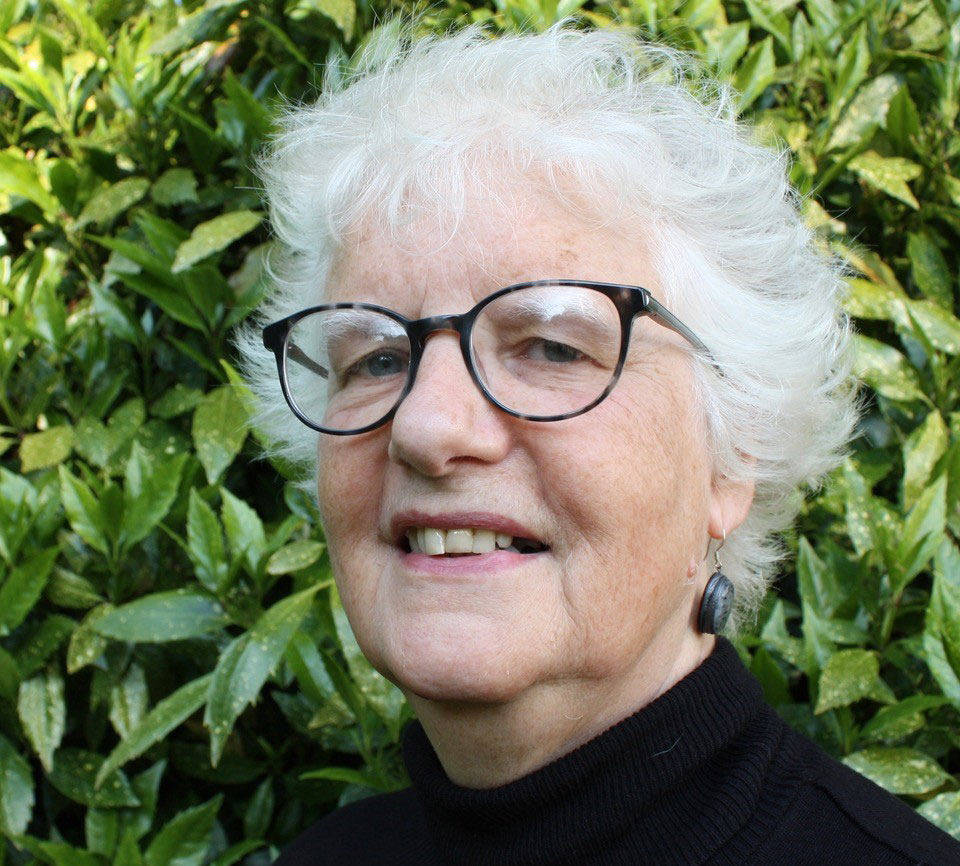We’re swamped with conflicting advice about food. Eat only plants? Cut dairy? Meat’s fine. Meat’s the enemy. What should we believe? Dr Pamela Mason has a reputation for common sense, and as the scientist who co-authored the book Sustainable Diets with Professor Tim Lang, she’s hugely respected in the field of food, nutrition and sustainability. If anyone can find a way through, it’s her.
When I speak to her, she’s at home in South Wales, a bean and vegetable stew simmering in the slow cooker. “It only took five minutes to make – it’s beans and peas from Hodmedod’s and carrots and onions from my local veg box,” she says.
Mason has her feet on the ground. She’s a public health nutritionist, who originally trained as a pharmacist and worked first as a community chemist in north Wales before a long career in writing and teaching pharmacy and nutrition, at the Centre for Alternative Technology and Cardiff University. Her science is firmly based in the real world where people work long hours, have small budgets, and their families have strong feelings about the food on the table.

“At the Welsh Real Food and Farming conference last week I was asked for pointers on a sustainable diet. I decided not to talk about fat, meat or vegetables. In the UK where many of us are overweight or obese, as a population we need first and foremost to eat less. That has really significant positive environmental impacts and will help reduce the healthcare bill. So that’s a win-win.”
She goes on: “Second, we also need to be wasting less. A lot of food waste in the UK lies at the door of the consumer. And thirdly, nutritionists have long said to eat a varied diet. What I’m saying is to eat a biodiverse diet. We’ve a lot more to learn about the effect of dietary variety on the gut microbiome but it seems to me that eating a biodiverse diet is potentially good for us.”
So what does she think about the calls for us all to turn vegan? “I get a bit distressed about meat versus veganism. I look for the similarities. It can be a very angry debate and it sets people against people. In the food system that’s not right. We all eat, and we all need to eat good food. I’ve great respect for people who eat vegan or vegetarian, and for people who eat meat. We all need to be eating good food, whatever we’re doing.”
If you’re looking for official guidance, Mason suggests that the NHS’ Eatwell Guide are a good place to start, and that if we all moved towards them it would not only be good for our health but also for the planet.

Livestock farming is another contentious issue at the moment, with a report by the Committee on Climate Change’s (CCC) stating the UK needs to reduce sheep and cattle by between a fifth and a half, something rejected by the National Farmers’ Union (NFU)’s own plan to achieve net zero emissions.
Mason is thoughtful. The UK, she notes, has a great climate and land for growing grass. “What bothers me is very intensive grain-fed meat, of which you see a lot in the United States, and intensive dairy, and we’re beginning to see intensive dairy in Britain.
“But in Wales, we see far less intensive livestock production. There’s significant evidence that livestock can do an awful lot of good on the land, but it’s about numbers and intensity. It’s often about rotational farming.”

That raises the question of whether we can feed the planet through such non-intensive, rotational farming. “I think we could feed people on the planet with a healthy diet from a sustainable food system,” says Mason.
“But it might overall look a very different diet to what we eat now. It’s very difficult to talk globally because people in different parts of the world eat very differently. What we certainly need to be doing more of in this country is growing more vegetables, and I’m very passionate about that.”
An advocate of eating locally-grown food, Mason says: “We grow wheat in this country and a lot of our heritage grains – spelt, barley, oats – can be sustainably grown in the UK, as can many beans and even seeds, like linseed and chia. Lots have been grown to feed animals but all can be used to feed humans. It’s about shifting the balance and growing a lot more of these plant-based commodities for use in human diets.”
As the time of writing, the UK is about to elect a new government. What food policy would Mason like it to commit to? “I would like a new government to invest in vegetable production, the whole cycle right through to consumption. Producers have to know they can sell. So we have to create demand,” she says, adding “and that will be through education”.
As a young community pharmacist, Mason realised that many of the people who came to her for medication really needed to eat a healthier diet. She isn’t the kind of person to tell us what not to eat: rather, a wide range of foods in moderation, grown sustainably, is her baseline. There’s room for all of us there.












0 Comments